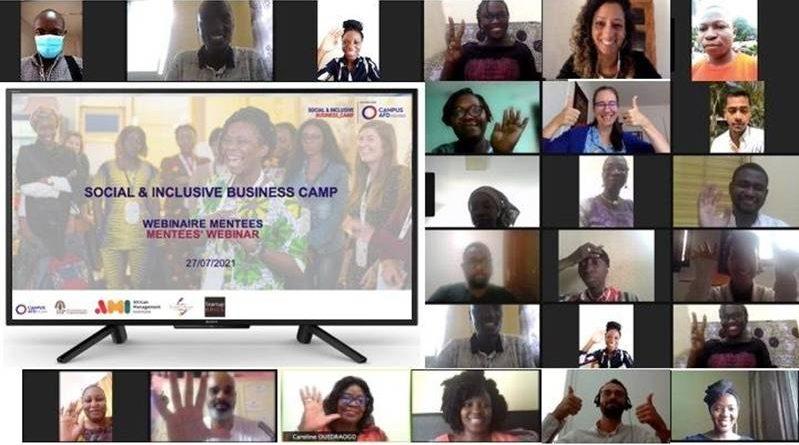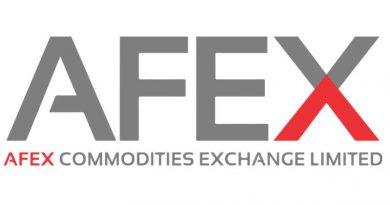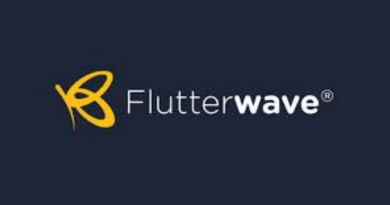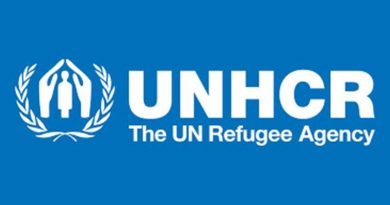Meet the 40 cohorts of the 2021 Social & Inclusive Business Camp
The Social & Inclusive Business Camp (SIBC), a yearly acceleration programme designed to help the most promising high-impact African entrepreneurs scale up their businesses, is delighted to introduce its 40 inclusive African businesses in the 2021 cohort. They have been on a high-level training course with a dedicated mentoring programme that started in late August and will last just over three months.
Upon completion, they will have one week of intensive coaching and training during the final BootCamp from December 9 to 12, 2021, in Marseille to help them enhance their skills and apply the lessons of the online coaching phase in order to put the finishing touches to their business plans. The programme will culminate in two inspiring days of networking and the final part of the course where they will have the opportunity to speed-meet international investors during the EMERGING Valley Summit on December 13 and 14.
The Social & Inclusive Business Camp has become a key programme for high-impact African entrepreneurs. A social entrepreneur, and more broadly a high-impact or “inclusive” entrepreneur, refers to anyone whose business has economic viability, strives to find answers to social and/or environmental issues and develops as many positive externalities as possible.
For instance, this could be creating opportunities and including precarious populations (small producers, women in rural areas, young people, communities with little access to education, etc.) in the company’s value chain (employees, suppliers, distributors, etc.) as well as creating local and sustainable wealth, or a company who endeavours to respond to social or environmental problems linked to SDGs (fighting global warming, reducing poverty, access to education, etc.).
As such, the SIBC aims to accelerate social and inclusive innovation in Africa by helping talented companies scale up their operations and prepare for fundraising every year by teaching them the required skills through its innovative training course, and networking with other entrepreneurs, innovative ecosystems and potential investors. The SIBC also aims to create lasting links between the different stakeholders from the entrepreneurial ecosystem via a transversal mentoring programme with the help of entrepreneurs from previous years.
Since the AFD Campus first initiated the programme in 2017, the SIBC has trained 200 high-impact entrepreneurs on the African continent scale up, measure their social performance and prepare for fundraising. In 2020, the AFD placed its trust in a consortium of international partners – Investisseurs & Partenaires, the African Management Institute (AMI), ScaleChanger and StartupBRICS, founder of EMERGING Valley – to implement the programme. With a team of expert trainers and detailed knowledge of African entrepreneurship, the consortium embodies the SIBC’s values of helping entrepreneurs with their needs as much as possible.
AN INNOVATIVE CAPACITY-BUILDING PROGRAMME SUITED TO THE NEEDS OF ENTREPRENEURS DURING THEIR GROWTH AND FUNDRAISING PHASES
Since late August, the 40 companies of the 2021 cohort have been on a programme which combines 3 innovative and participative teaching approaches to prepare the entrepreneurs for the coming stages of their future development:
● Three months of online learning, designed as peer-to-peer coaching to bring together live virtual classes, open-access resources and practical tools in 4 main areas: leadership development and team building; scaling up; investment readiness and measuring impact.
● A week-long bootcamp from December 9 to 14, 2021 where this year’s SIBC entrepreneurs will come together in Marseille to delve head first into the programme’s topics, meet investors and potential partners and pitch at the EMERGING Valley summit.
● A mentoring scheme: the entrepreneurs have all benefitted from the one-to-one support of a mentor from previous years who, like their mentees, is evolving in the sector of social and inclusive entrepreneurship in Africa and has experience with scaling up and/or raising funds in order to help them support their mentee throughout the programme.
THE SOCIAL & INCLUSIVE BUSINESS CAMP COHORT 2021
35 African companies were selected from last spring’s call for applications. These businesses are run by entrepreneurs with inspiring backgrounds and either aim to tackle genuine societal issues (agro-food, nutrition, sustainable development, energy, education, vocational training, healthcare, hygiene, housing, including women, etc.) or carry on ancestral know-how today.
Benin – Benin AgroTrans (Mme Simone ASSOCLE): AgroTrans is an innovative social enterprise that aims to improve the quality and safety of food products for Beninese communities. It uses improved processing technology to produce long-life smoked fish. AgroTrans particularly focuses on promoting youth and female employment.
Burkina Faso – African Foods Nutrition (represented by Ms. Mathe ALLAH): AFN is an agro-food processing unit with an industrial vocation that fights against widespread malnutrition and focuses on child malnutrition with its range of nutritional flours and high-quality food supplements that are designed and produced locally from a selection of raw materials with high nutritional values.
Burkina Faso – KENEYA (Mr Seydou TRAORE): KENEYA is a healthcare structure dedicated to helping elderly or disabled people as well as those with reduced mobility. KENEYA also operates in corporate medicine (staff support) and event medicine (medical coverage for sports, cultural, political activities, etc.), in order to offer better health coverage in Burkina Faso.
Burkina Faso – Ragussi Union of Cooperative Societies (Ms. Caroline OUEDRAOGO): UNION RAGUSSI is a women’s organisation that brings together 1,500 female collectors of shea almonds and producers and processors of shea butter and organic cosmetic products. These activities aim to economically develop a local resource by way of sustainable exploitation (organic production) to provide regular income for every woman across the whole production chain.
Burkina Faso – SIGER (Mr Régis Wilfried KIENTEGA): SIGER is a company that processes and distributes local spices and helps strengthen the food processing sector leading to the creation of income and jobs.
Cameroon – OZFARM (Mr Yves BITAMA): OZFARM produces and distributes natural fruit juices in Yaoundé. As part of its impact policy, Ozfarm is developing a “neighbouring orchard” project to provide 320 women with free seedlings so that each one of them can grow a 100-plant orchard themselves.
Ivory Coast – Diagnostic Vital (Ms. Tatiana MOKE): Diagnostic Vital sets up biomedical analysis laboratories in private and public health centres that do not have them in order to provide the population with access to better care at a lower cost.
Ghana – Tele Bere (Mr Mark AKPARIBO): Tele Bere works to improve the livelihoods of forest and agricultural producers by strengthening and developing their ability to work effectively. Tele Bere provides efficient and cost-effective solar powered micro-irrigation systems for small-scale farmers in northeast Ghana.
Ghana – Tondaar Ventures (Mr Abdul Hamid ADAMS): Tondaar Ventures is a leading social enterprise within the shea value chain in Ghana. The company helps rural women process unrefined shea butter for export. The entity empowers women and young people within cooperatives so they can produce a high-quality product and access sustainable shea markets.
Kenya – ECOBORA (Mr Justine ABUGA): ECOBORA provides patented solar-powered stoves, that consume no firewood at all, to marginalised rural schools and hospitals. The stoves are affordable and provide thermal energy even during the rainy season.
Kenya – Mukuru Clean Stoves (Mme Charlot MAGAYI): Mukuru Clean Stoves designs, manufactures and distributes improved, efficient and reliable stoves. The stoves are made from locally sourced recycled metal and distributed through networks of female entrepreneurs and local microfinance institutions.
Kenya – Usalama Technology Limited (Mr James CHEGE): Usalama is an integrated platform that connects its users to emergency service providers, particularly ambulances. It is also a personal safety tool and channel to receive healthcare information (BoP target).
Madagascar – Bôndy (Mr Max FONTAINE): Bôndy advises companies and designs CSR projects for them through tailor-made reforestation adapted to their objectives. Bôndy then realises the agroforestry projects from start to finish which are predominantly on peasant plots of land.
Madagascar – PokPok (Mme Andrianinia RANDRIAMIFIDIMANANA): Pokpok produces hand-woven bags made from natural raffia which celebrate the ancestral heritage of Malagasy know-how and preserve the precious handicraft technique of raffia weaving through modern and authentic products.
Madagascar – Tigony (Mr Enki BARACHE): Tigony manufactures and distributes the first long-lasting bag that is both efficient and ecological for farmers in sub-Saharan Africa. The objective is to improve their food security and income and fight against the widespread use of plastic in the sub-region.
Mali – Mali Solar Initiative (Ms. Assitan FOFONA): Mali Solar Initiative strives to respond to Malian energy-related paradoxes with daily solar-powered products that produce light, facilitate access to information and recharge devices if necessary.
Niger – FASAM Terre Verte (Mr Boubacar Djibo Almoustapha): FASAM is a cooperative entity of agricultural expertise and rural development which designs, creates, develops and maintains all types of agro systems (gardens, orchards and large fields). It produces and promotes agricultural products, structures peasant organisations and develops eco-friendly jobs in Niger.
Niger – Fromagerie la Crémière du Sahel (Mme Maimouna SOUMAYE): Fromagerie la Crémière du Sahel processes local milk into cheese and yoghurt and helps farmers improve their productivity and adapt best practices in dairy farming.
Nigeria – Amina Dyslexia Centre (Ms. Anita Nchat KEVIN): Amina Dyslexia Centre aims to solve the problem of dyslexia-induced illiteracy by using technological tools that help educators assess dyslexia and design curative measures for it.
Nigeria – COLD ALIVE HUBS (Ms Joy CHIOMA): COLD ALIVE HUBS is a modular, 100% solar-powered cold room that provides 24/7 off-grid refrigeration to store and preserve perishable agricultural products, fresh fish and other sea food to enable small producers to extend their produce’s shelf life.
Nigeria – SMOKELESS BRIQQS ENERGY SOLUTIONS (Mr Charles Nnamdi): Thiseco-inclusive social enterprise was created from the desire to fight against climate change by recycling agricultural waste into sustainable and eco-fuel briquettes.
Nigeria – Osomobegbe Global Ventures Limited (Mr Eugene OSOMOBEGBE): Osomobegbe manufactures, distributes and leases solar dryers used to dry and process agricultural products to enhance food security and reduce the amount of produce that gets wasted after harvest.
Democratic Republic of Congo – PKT & PARTNERS GROUP SARL (Mr Patrick KABANGIRO): PKTT is an environmental industrial company that manufactures charcoal briquettes for cooking energy and a biological fertiliser known as “Biochar” which is a soil amendment. Biochar is made by pyrolysing biomass and makes plants grow faster, improves agricultural yields and offers a clean-energy solution for cooking.
Rwanda – Creative World (Mr Pascal ANGO): Creative World is a training centre that teaches basic IT skills, French and English. The company trains young graduates or professionals to use IT tools in the workplace.
Senegal – Calinou’nou (Mme Fatou DIOP): Calinou’nou is a home-help company based in Dakar which offers childcare, cleaning and professional catering services. Calinounou provides its employees with training, helps them with career plans and awareness of good financial management (financial empowerment).
Senegal – Mbawane fish and aqua-tourist farm (Mme Khadidiatou SAR): This fish and aqua-tourist farm in Kayar, in the region of Thiès, helps tackle the problem of the local demand for fish, boosts tourism and empower local youth and women by creating permanent and temporary jobs.
Senegal – Green Agro Valley (Mr APPESSIKA ADANIN LAURENT KOFFI): Green Agro Valley offers low-cost irrigation systems to small producers to help them deal with global warming better. It also offers low-cost boreholes for irrigation and drinking water supply for small towns.
Senegal – Miya Sénégal (Ms. Ndioro DIENE): Miya Senegal transforms and distributes water in 10L and 19L returnable bottles. Miya helps reduce the cost of water for everyone and fights against single-use plastic.
Senegal – Société Sénégalaise pour le Développement de l’Elevage (Mr Daouda GUEYE): SOSEDEL is a veterinary pharmaceutical company that works in the sector of livestock by importing and distributing animal feed. The company is the first distributor to launch small-scale bird vaccines that is adapted to underprivileged populations.
South Sudan – Gezira Young People Agribusiness Trust Company Limited (Mr Ruot Kedok Dar LAM): GYPAT processes and distributes fruit into juices and smoothies. This helps connect fresh fruit and vegetable farmers to markets. It also offers capacity building training for young people and women.
Uganda – KAINO Africa (Ms. Lyndah KEMBABAZI): KAINO is an EdTech product allowing Ugandan preschools and parents to access quality mixed course guides (science, technology, engineering and maths), that is aligned to school curricula and that parents and teachers use to teach their students.
Uganda – Onachil (Ms. Rhona BIRABWA): Onachil manufactures, sells and rents solar-powered cold chain technology to farmers to keep their produce safe after harvest.
Uganda – Farm Kiosk (Mr Charles BWANIKA): Farm Kiosk connects farmers with different stakeholders in the value chain using a web portal and mobile app that connects them to markets, agribusiness service providers, including agronomists, and rentable agricultural equipment. Farm Kiosk also puts young people in touch with landlords who are looking to rent arable land.
Tanzania – NGWALAGO Inventions (Mr Edmond NG’WALAGO): NGWALAGO Inventions offers an automated service to deliver organic pesticides and organic fertilisers to small-scale farmers on time and at a lower cost to help protect the environment by cutting down on the use of small plastic containers/packaging.
Togo – AHOENOU (Mr Ayité AJAVON): AHOENOU is an agro-food company that specialises in transforming raw agricultural products into manufactured food products. It produces and sells AFRICUBE: a natural cooking stock made from local products that is free from chemicals or synthetic additives.
On top of these companies, we have the 5 winners of EMERGING Mediterranean 2021 – the unprecedented acceleration programme to scale up North African Tech for Good and positive innovation startups. The winners were elected on September 6:
Algeria – Mehan Houra (Mme Amira IRMAL). Mehan Houra is a mobile application for people looking for builders and repairmen. Registering on the application helps these artisans boost their online visibility and access online training and certification programmes.
Morocco – Neolli (Mme Mariem FAGHRAOUI). Neolli is an e-commerce website that helps traditional Moroccan artisans apply for patents, publishes their products online and supports them with repackaging and shipping. This company has already created a community of around sixty artisans and cooperatives and reserves more than 75% of the value for the artisans.
Mauritania – Neotic (Mme Mama DIAGANA). Neotic is a web & mobile communication agency aimed at Mauritanian startups, NGOs, and SMEs. The company has created an integrated web and mobile solution that offers a full range of e-commerce and data-analysis services.
Libya – Dawrrat (Mr Alaa ELSGIER). Dawraat.com is a Libyan e-learning platform that tackles the lack of qualified professors in Libyan public universities, the overcentralisation of these professors in Tripoli and expensive university fees that students from modest backgrounds cannot afford. Its platform brings together qualified teachers from Libya and abroad.
Tunisia – AI Diagnosis Vision (Ms. Saoussen AYARI). AI Diagnosis Vision is a web platform that uses artificial intelligence to analyse dental x-rays and provide accurate diagnoses and treatment plans. It responds to the lack of equipment in dental radiology that leads to misdiagnoses and endless unnecessary examinations.
THE ADDED VALUE OF NETWORKING IN YOUNG AFRICAN SMEs’ ENTREPRENEURIAL JOURNEY
On top of specific training on strengthening entrepreneurs’ skills and know-how, the SIBC has a strong community with a large network of stakeholders.
The programme’s networking is based on 3 central pillars:
A pan-African alumni community: The SIBC is committed to uniting this community by building bridges between participants from previous years with a yearly mentoring scheme whereby experienced alumni support up-and-coming members of the community throughout their business journey, as well as collective sessions that are open to the entire SIBC community. The programme helps entrepreneurs be more in touch with one another and develop areas of collaboration (strategic partnerships, access to new markets, contacts, etc.), beyond the support programme.
Inspiring meetings with entrepreneurs and experts all throughout the learning process: Peer exchange is at the heart of the support programme, and each year mobilises a large number of experts across the continent: investors, human resource specialists, management coaches and many leaders of growing companies.
The creation of funding opportunities during the Bootcamp and the EMERGING Valley summit: Within the programme, companies gain access to a panel of investors and partners to help them make a key first contact that may result in a partnership. During the 2020 edition, 40 investors and financial partners were present to meet the SIBC cohort during the speed meetingevent.
SOME FEEDBACK FROM OUR ALUMNI
“The programme has helped me with all aspects of my business, specifically: revaluating my vision of scaling up thanks to so much feedback from different sources, the training programme on scaling up, organising my business, and obviously putting an emphasis on the quality of my team. Then of course there is my business plan: I had one but it was not too professional, unlike the one you showed to us, and meeting investors and showing our business plans.” Lebon MIRUHO, director of Savonnerie du Kivu (DRC) – SIBC 2020.
“The SIBC is a great network that we are now part of. The quality of the training left me speechless, I identified with many of the subjects and felt supported as we were all working together on our issues.” Olfa KILANI – KYTO-PROD (Tunisia) Member of the 2020 cohort and winner of EMERGING Mediterranean 2020.
“A great, enriching and educational joint adventure. I made lots of progress and loved listening to and interacting with the participants. Thank you to the excellent trainers and all of the speakers who generously shared their experience.” Marie-Andrée TALL – FRUITALES (Senegal)
“A highly resourceful learning experience.” Gedeoñ MASHISHI – 24BIO (Democratic Republic of Congo).
“The SIBC has given me a lot in terms of mentality and motivation. Entrepreneurship is a long-term project, and the relationship with my mentor – who went through the same steps – kept me motivated, optimistic and feeling less alone when facing my challenges.” Raki BEN MOHAMED – KOOKA (Niger).
For more information: https://www.socialbusinesscamp.com/




